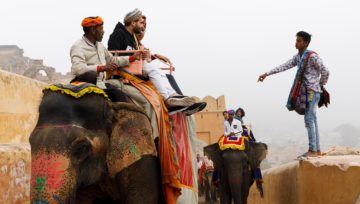 Malcolm Keating in Psyche:
Malcolm Keating in Psyche:
In premodern India, debates were entertainment in courtly settings, a sport for profiteers and clever men who enjoyed a quick turn of phrase or put-down. Successful debaters gained followers, fame, even wealth. Those pragmatic aims intertwined with nobler ones: religious believers and nonbelievers debated over deep religious truths. Both inside and outside religious traditions, participants sparred over controversies with significant social implications. Even the efficacy of medical cures was hard-fought in the debate arena.
During the 9th to 10th century CE, Vācaspati Miśra, an Indian philosopher who was part of a Hindu tradition called ‘Nyāya’ (or ‘reason’) argued that debate benefits society when it aims for truth. He thought, too, that debate helps us humans achieve ultimate happiness in our short, fragile and often painful human lives. But if debate has such noble aims, should we care about winning or losing? And if debate leads us to the truth, should we always debate everyone, everywhere? To understand Vācaspati’s answer, we must first understand the Nyāya philosophy of debate.
For Nyāya philosophers, we acquire ultimate happiness by ending the self’s painful cycle of rebirth, its journey from life to life, always bound to our past actions. Before we can end this cycle, we must rid ourselves of ethical vices. And this requires knowing the truth.
More here.
